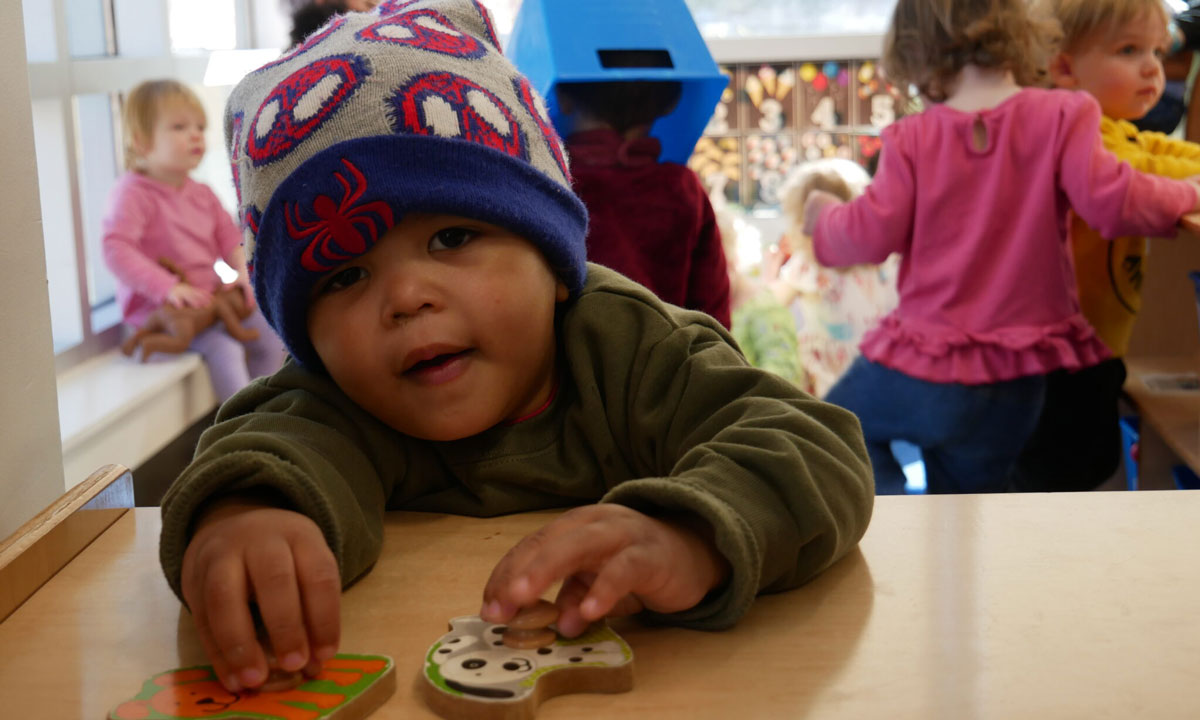This article was originally published in Ed NC.
More licensed child care programs in North Carolina are closing their doors as the state approaches the expiration of pandemic-era stabilization funding.
According to data provided by the NC Child Care Resource and Referral Council (CCR&R) in partnership with the NC Division of Child Development and Early Education (DCDEE), the state has experienced a net loss of almost 5% of programs since February 2020.
Closures of licensed child care programs have been outpacing the opening of new programs since at least June 2023 — and now the rate of that trend appears to be increasing.
Help fund stories like this. Donate now!
Between June and December 2023, the state had a net loss of 34 programs. But in just the first three months of 2024, the net loss was 41.
This pattern reflects what many experts — including providers themselves — have been anticipating since last year, when state lawmakers declined to provide additional funding that would continue stabilizing the precarious child care system beyond June 2024.
House Speaker Tim Moore, R-Cleveland, has said addressing the child care crisis is a “priority” during this year’s legislative session, but has not yet announced a plan for doing so.
Urban and suburban trends
Combining data from CCR&R, DCDEE, and the NC Rural Center, EdNC analyzed the percentage change in the number of licensed child care programs across the state’s urban, suburban, and rural counties since February 2020.
Each of the state’s six urban counties has experienced a net loss of licensed child care programs. Durham and New Hanover had the greatest net losses of 14.3% and 13.2%, respectively. All of the urban counties combined had a net loss of 6.3%
The state’s 16 suburban counties have fared somewhat better, with a net loss of 2.8%. Nine counties had a net loss, Gaston and Union had no change, and five counties had a net gain.
Buncombe is one of those suburban counties that had a net increase in the number of licensed child care programs since February 2020.
The Buncombe County Board of Commissioners established an Early Childhood Education and Development Fund in 2018 to “ensure that every child in Buncombe County has an equal opportunity to thrive during their first 2,000 days.” The county is also home to the Asheville Buncombe Preschool Planning Collaborative, which was convened by the Buncombe Partnership for Children in 2021, and envisions every child age 5 and under having access to high-quality, affordable early care and education.
Such local initiatives might help explain why Buncombe has gained child care programs while most other urban and suburban counties have stayed the same or lost programs without additional investment from the state.
Nearly a Third of North Carolina Child Care Providers to Close Within Months
Rural trends
The vast majority of North Carolina’s counties (78 of 100) are designated as rural. Combined, these counties had a net loss of 4.3% of licensed child care programs since February 2020, closely matching the overall state trend of 4.7%.
Of our 78 rural counties, the majority (44) experienced a net loss. In some counties, the loss of a single licensed child care program can have an outsized impact.
For example, Camden and Graham had the largest negative percentage change from February 2020 through March 2024. Both came in at -25%. In each county, that’s the result of just one program closing its doors.
Among the 34 rural counties that did not have a net loss of child care programs, 17 were stable, and 17 had net gains.
Among rural counties, there’s wide geographic variability to whether a county has gained, stabilized, or lost licensed child care programs.
Rural counties with net gains range from Person in the north, to Robeson in the south.
Rural counties with the same number of licensed child care programs in the first quarter of 2024 as they had before the pandemic include Mitchell in the mountains, Rockingham in the Piedmont, and Hyde on the coast.
Rural counties with net losses include Caldwell and Cleveland to the west, and Carteret and Craven to the east.
The overall net loss of licensed child care programs statewide — whether urban, suburban, or rural — could jeopardize North Carolina’s economic future.
Studies show investment in early care and education for our youngest residents not only enables their parents to fully participate in the labor force, but also improves children’s health outcomes, reduces their likelihood of being incarcerated, and provides the foundation for their educational and economic futures.
We’ll get a report on the second quarter in June 2024 — right before the arrival of the funding cliff that experts predict will cause a continued wave of not only program closures, but classroom closures, without additional stabilization funding from the legislature.
This article first appeared on EducationNC and is republished here under a Creative Commons license.
